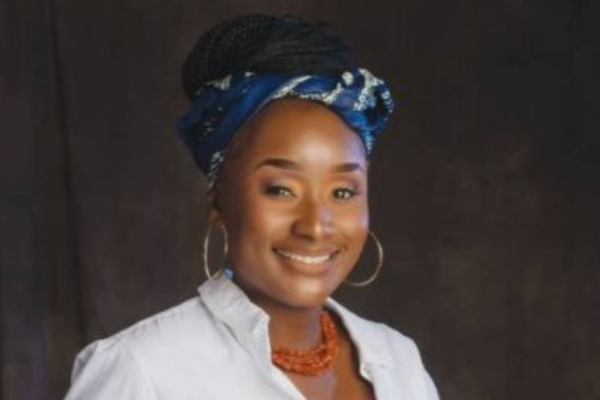Alexandra Mliswa – passionate about human & community development

Alexandra Mliswa is a lawyer by profession. She holds an LLB and MSc. She works in the CSR and dispute resolution space in the extractive industry. She is passionate about human and community development.
Rudairo Mapuranga
I interviewed her and this is how our interview went.
Q: How did mining come to you? And why did you choose mining as a career?
A: I developed a passion for human and community development quite early in my schooling career, and while I admit that working in the mining industry was not anything I ever saw myself doing, I think I can say that I still have not strayed from my passion. There has been a shift from a predominantly agricultural economy to one where mining now contributes significantly to the Zimbabwean economy; as a result, the Government of Zimbabwe has generated policies which have seen the mining industry opening up quite a lot and that’s how I found myself here.
Q: What challenges are you currently facing as the mining community?
I believe that one of the many challenges the mining community is facing is a widespread lack of understanding of what the role of a mining company is, in a mining community. This has led to misguided notions of what CSR entails and where the responsibilities of mining companies begin and end. These misguided notions, on both the side of the community and the mining company, have resulted in mining company-community conflicts which further result in a bad working relationship hindering genuine sustainable community development or the development of proper conflict management and resolution mechanisms. I would like to go more into this, but my time is limited.
Q: What legislative reform would you recommend for the growth of women in mining?
Something similar to the BEE initiative framework in South Africa. I would imagine a situation where it becomes a legislative requirement to have a quota reserved for qualified women in mining to take up top key positions in management, executive and even board positions where they can be heard and make decisions that have an impact on the way that mining is conducted in the country. Mere representation is not enough, it must be accompanied by genuine involvement in key decision-making processes. This quota could be complemented with tax incentives or other initiatives for compliance.
Q: What book do you recommend women in mining to read and why?
‘A New Earth: Awakening to Your Life’s Purpose’ by Eckhart Tolle was selected for Oprah’s Book Club which is how I found out about it. She often spoke about it on her podcast ‘Super Soul Conversations’ and how it transformed even her life providing her with guided reflection, balance and calmness and strength that has helped her in her career and life as a whole.
I have found it very helpful as well and find that I often open certain chapters and re-read them when I need to. I recommend it to women in the mining industry because they are faced with a lot of pressure from being in a male-dominated industry which can at times make you ‘lose your cool ‘ from time-to-time ( I’m sure the women in mining and other male-dominated industries can relate to what I’m saying).
Q: You have contributed immensely to the CSR process in Zimbabwe. Tell us about this experience and some of the changes you would still like to see.
Zimbabwe still has a long way to go in establishing a CSR culture that speaks to the values and needs of the country as a whole and the specific mining communities that surround the different mines. Issues such as sustainable community development, developing a culture of ESG reporting, and justiciable human and community rights are all areas where I would like to see more commitment. Mostly I would like to see more changes based on fulfilling the existing legislative framework and our national constitution. I am of the view that there is no problem with many of the laws that speak to community development they are generally very fair and inclusive, however, there is a disconnect perhaps in policy and enforcement mechanisms which needs to be addressed so that communities benefit in a way that is fair to both them and the mining companies they host.
Q: Please describe your current role at your company.
It involves dealing with people a lot which can be quite challenging. Mostly the tasks include stakeholder engagement, resettlement of community members away from mining operations, sustainable community development programmes and interventions in the surrounding mining community, and conflict and complaint management. I also handle an aspect of compliance in ensuring that the mining company is adhering to the laws and regulations that are in place to protect both the human and natural environment.


